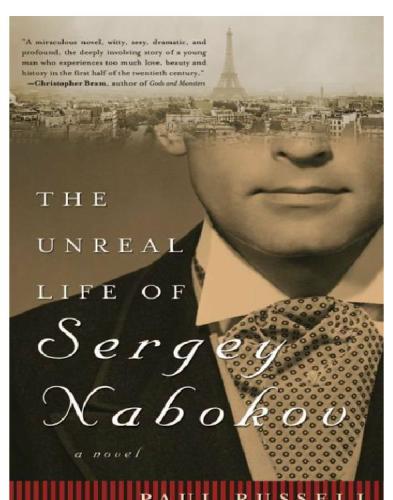
The Unreal Life of Sergey Nabokov
A Novel
کتاب های مرتبط
- اطلاعات
- نقد و بررسی
- دیدگاه کاربران
نقد و بررسی

September 12, 2011
In this meticulously researched novel, Russell (The Coming Storm) imagines the life of the younger, and now forgotten, NabokovâSergey. Always living in the shadow of his older brother, Sergey finds himself in 1943 Berlin working for the Propaganda Ministry. When he realizes that he may be under surveillance, he begins hastily penning his life story. From his birth in pre-revolutionary Russia, Sergey (cursed with a stutter) claims that his parents viewed him as Vladimirâs pale comparison. As Sergey tells of his early life in St. Petersburg, the narrative shifts to depicting a homosexual man living in uncertain times, with touches of glamour as Sergey meets Gertrude Stein, Pablo Picasso, and Jean Cocteau, among others. Sergeyâs struggles with his sexuality, as well as his adventures and misadventures in the salons and clubs of pre-war Europe, are drawn with humanity. With compelling characters and steady prose, the reader will breeze through this pleasurable, heart-breaking account of the other Nabokov.

Starred review from October 15, 2011
In this meticulously researched novel, Russell (The Salt Point), named a Granta Best Young Novelist, reimagines the life of Sergey Nabokov, the gay narrator and younger brother of the great writer Vladimir. We catch our first glimpse of the brothers and their affluent family in prerevolutionary St. Petersburg, Russia. Vladimir comes across as an insufferable egotist who doesn't scruple to make his younger brother's life miserable. After the Russian Revolution, the author follows the Nabokov brothers as they escape from the Bolshevik regime to Cambridge, then, eventually, Sergey settles in Paris. In the French capital, the younger Nabokov lives close to the bone but comes to mix with many of the luminaries of the day: Diaghilev, Picasso, Stravinsky, and, most notably, Cocteau. The novel's "present," from which it flashes back to the narrator's earlier life, is wartime Berlin 1943, where Sergey, having found work in the Reich's Propaganda Ministry, lives in fear that every moment may be his last because of his sexual orientation. VERDICT A story that will make you laugh and smile then breaks your heart, this is a rich tapestry of the human condition. Highly recommended.--Edward Cone, New York
Copyright 2011 Library Journal, LLC Used with permission.

October 15, 2011
Russell's (War against the Animals, 2003) sweeping, ambitious novel is based on the little-known story of Sergey Nabokov, the overlooked gay brother of famed Russian author Vladimir Nabokov. In 1943 Berlin, Sergey, in his early forties, works for the Propaganda Ministry while the city is being destroyed by nightly air raids. Under Gestapo suspicion and surveillance, the doomed Sergey begins to write his memoirs, alternating between his past and the harrowing uncertainty of his future. Throughout his privileged childhood in Russia, introspective Sergey feels overshadowed by his confident, aloof older brother, a vulnerable bond further tested as Sergey struggles with his homosexuality. Their complicated relationship haunts Sergey throughout his journeys, from his adolescence in prerevolution St. Petersburg, to his years in Cambridge, to vibrantly creative 1920s Paris, where he crosses paths with a lively cast of literary and artistic luminaries. Here, he begins to find the acceptance as a gay man that long eluded him. Russell creates a sensitive and revealing portrait of a man both reviled and cherished in the heart of the turmoil in twentieth-century Europe.(Reprinted with permission of Booklist, copyright 2011, American Library Association.)

























دیدگاه کاربران